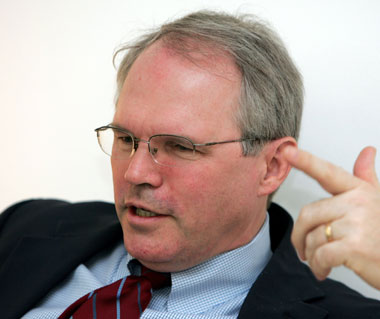
The Obama Administration is Making a Big Mistake by Moving Hill Elsewhere
Hill is indeed an outstanding diplomat. Without him, the Six-Party talks would not have achieved the current result, even though it is still premature.
The first merit of Hill is his ability to analyze the situation, knowing what can be discussed and what is superfluous. Take the U.S.'s stance on North Korea's problems, for instance. The U.S. government not only expects the Kim Jong Il regime to undergo some reform, but also wants to attain progress on the nuclear issue. Nevertheless, it would just be in vain if America insists on addressing the two issues simultaneously. Under those kind of circumstances, we can never see Hill discussing the internal problems of North Korea, but focusing on the nuclear issue. In spite of sparking criticism from conservatives, would Kim Jong Il be willing to cooperate with the U.S. in the talks without Hill's efforts?
Secondly, Hill handles the negotiations with flexible diplomacy. Instead of holding the lofty U.S. stance, he would try to cooperate with his counterparts in the talks, as long as that benefitted towards a solution. He is willing to go to Berlin, Geneva and Singapore for meetings with the envoy of DPRK, Kim Kye Gwan, and then obtain a certain progress. Otherwise, the Six-Party talks would never have reached its current stage.
Thirdly, unlike other U.S. diplomats who are arrogant as if they were better than the others, Hill is easygoing, low-key and never tries to humiliate others. He has never lost his temper, even if obstacles occurred in the Six-Party talks. It was not easy. Several right-wing conservatives oppose this kind of low key policy, which triggers criticism from not only the Congress, but even from some fellows in the Bush administration. However, he still insists on his stance and refutes them, which is commendable.
If the only reason the Obama administration were to dispatch Hill elsewhere is because it is not satisfied with his way of negotiating, they may be making a big mistake. Nevertheless, if they aim to reverse the Bush style of policy, then that would be another story.


